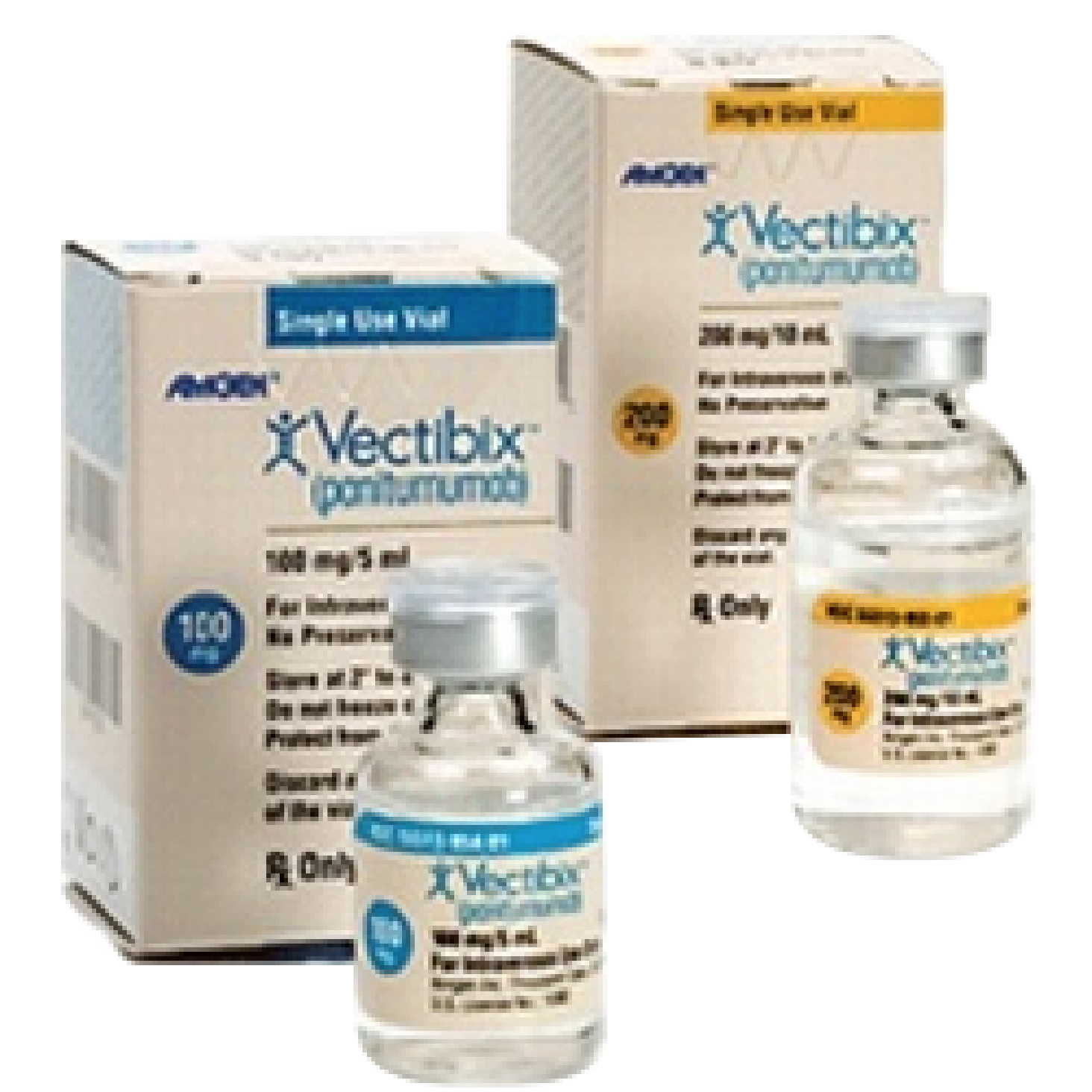
Panitumumab has a mechanism of action similar to that of cetuximab. It binds to EGFR on normal and tumor cells, inhibiting the binding of normal ligands. Nonclinical studies have shown that panitumumab prevents the activation of EGF receptors, resulting in inhibition of cell growth, induction of apoptosis, decreased proinflammatory cytokine and vascular growth factor production, and internalization of the EGFR. It has also been shown to inhibit the growth and survival of selected human tumor cell lines expressing EGFR in laboratory and animal studies.
Panitumumab is indicated for the treatment of patients with metastatic colorectal cancer and wild-type RAS (defined as wild-type in both KRAS and NRAS as determined by an FDA-approved test for this use), as a first-line therapy in combination with FOLFOX. It is also indicated in this patient population as a monotherapy following disease progression after prior treatment with fluoropyrimidine-, oxaliplatin-, and irinotecan-containing chemotherapy. Panitumumab is not indicated for the treatment of patients with RAS-mutant mCRC or for whom RAS mutation status is unknown. The panitumumab prescribing information has a boxed warning related to the potential for dermatologic toxicities. Skin reactions occurred in 90% of patients in clinical trials and were severe (grade 3 and higher) in 15% of patients receiving panitumumab monotherapy.
